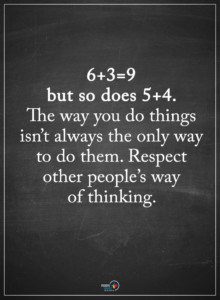Denmark Students Have Empathy Class as Part of Curriculum
If your children were studying in Denmark, they would be taking an empathy class as part of their curriculum. Is it possible to teach children or even adults how to feel the struggles and pains of others? Danish school authorities seem to think so.
Humans and our primate cousins are the only animals capable of empathizing. When you sympathize, you acknowledge that another is hurting, and you feel sorry for their condition. Empathy takes it a step further, and you share the raw emotion because of past experiences.
It goes beyond sympathy by being in the moment. It’s not offering judgment, advice, or platitudes. Just your compassionate presence and a listening ear are what most hurting people need.
Have we become insensitive to the pain of others in our country? Have the Danish discovered a lesson that we all could use? Consider these eight suggestions for teaching your children to have more compassion and empathy for other people.
Students Gain These Essential Takeaways from Empathy Class
1. Practice What You Preach
The best way to teach your children how to be empathetic is by being so yourself. Small children instinctively show their emotions but lack the cognitive ability to explain them. You will be their primary teacher for modeling empathy.
When your younger children are experiencing a negative emotion, be with them, and help them label and explain what they feel. By listening to you and watching how you react, they mirror the same with siblings and their peers.
2. Teach Your Children How to Be Good Listeners
Remember the wise saying that since we have one mouth and two ears, we should listen twice as much as we speak? Perhaps nothing is more accurate when it comes to empathizing with how other people feel. Active listening is a skill that many adults never learned.
How do you teach your kids to be a good listener? Try to be yourself. Listen carefully to what they say without interrupting. Of course, this assumes that the conversation is appropriate and respectful.
Model good eye contact and sincerely listen to what they are saying. Pause a few seconds before you respond. Your children will become more comfortable talking to you about situations in their lives, knowing that you value what they have to say.
With you as their example, your kids will learn how others feel when they listen to them. Becoming a skilled listener is a life-long practice. When your youngsters start early, they can cultivate excellent relationships with family and friends.
As a fun way to teach listening skills, try the iconic telephone game. Gather in a circle and whisper a short sentence into someone’s ear. The whisper is passed along the line until it gets back to you, and everyone laughs at how the story has changed.
3. Teach Empathy with a Game
You don’t have to wait until your child is feeling emotional pain to teach an empathetic lesson. Kids can identify with “what if?” games, which presents a scenario while they offer possible solutions.
For example, you could ask your children, “What if one of your favorite toys got broken? How would you feel?” Listen to their probable answers of sad, angry, hurt, and so on. Validate their responses by saying that is how other children would feel, too.
Create several scenarios that involve different emotional responses and discuss them in a way your kids can understand. Encourage your children to express and label their feelings, so others know how best to respond. The more practice they get with age, the more understanding they will be with their siblings and friends.
Remind your child of these sympathetic lessons when you need to correct a situation or behavior. Johnny sticks his tongue out at his little sister and calls her a name. He needs to know that his behavior is unacceptable and why.
“How would you feel if your little sister made a face at you and called you an unkind name?” Give him time to think about how he would feel and that his sibling would feel the same. When children identify their own negative emotions, they may be less likely to make others feel like that.
Here’s an empathy skill building game to try
Child psychologists and teachers say that playing games are an ideal way to teach children new concepts in a way they understand. Here’s an empathetic skills game your children will love. It is like the “What If” game.
Peel the labels from a gallon pickle jar and wash and dry it thoroughly. On brightly colored note cards, write different moral dilemmas that are on your children’s level. Explain to your kids that sometimes we get into an emotional “pickle” and need to empathize with doing the right thing.
Each day allows a different child to reach into the “pickle jar” to see what today’s “pickling” problem is to handle. For example: “You were in the library, and you found a wallet full of money. What would you do?” Each discussion you have teaches your children honesty, morality, and understanding of how the affected person may feel.
 4. Teach Your Children the Importance of Compassion
4. Teach Your Children the Importance of Compassion
Children often learn to value the things their parents do. If you teach your children that showing kindness to others is a top family value, they will probably practice it into adulthood. Empathizing with others is a valuable skill that is often lacking in our world.
When they identify with another’s feelings, children learn how to be kind, considerate, and accepting. Learning empathetic skills for those who are different opens your children’s eyes to new cultures and beliefs. It is a strong defense against prejudice and senseless hatred.
5. Discuss Feelings in Books or TV Shows
Maybe one of the main reasons people read for pleasure is because we often find common ground with the characters. As you cultivate a love of reading in your children, take the opportunity to discuss how the characters in the story feel.
You can encourage the same discussion after watching a movie on television. Could they understand how the characters may have felt in a situation? Ask them if they were in the story: how would they think and react?
6. Exercise Your Empathetic Skills as a Family
Reading and discussions are great, but empathetic skills are honed with real people and situations. Do you want your kids to grow up to consider the feelings of others? Be part of a positive change in your community.
Have a family meeting and discuss ways you could help others in need. Maybe your family could regularly volunteer at your local food bank or homeless shelter. Your children will discover that we are all humans who can feel tired, lonely, and afraid.
When you teach your children how to reach out, they realize the feeling of selflessness and empathetic joy. These life skills will build character and skills needed in all areas of their maturing lives. Your enthusiasm for compassion is contagious.
7. Teaching Empathetic Skills for Animals and Nature
Young children are naturally drawn to soft, cuddly animals. However, they need adult guidance to learn how to care for animals with kindness. At first, little ones assume that family pets are just another toy in their collection.
Model appropriate handling and teach your children that pets and all other animals have feelings too. Ask your children, “How do you think Kitty feels when you pull her tail?” Or, “Do you think Fido was happy that you splashed him with water?” Allow the child to imagine himself in the animal’s place, so he can experience and change the emotion and behavior.
8. Your Children Need to Know You are Human
You are your child’s first teacher of empathetic and kindness skills, but you are still human. Starting from infancy, young children view their parents as infallible superheroes who defy pain and fear. As they get older and empathize more, they realize your human shortcomings.
Not only is it okay to show your kids how you feel, but it is beneficial for everyone. Grieving is a critical time to share. “My heart is sad, and I am crying because Grandma passed away, and I miss her.” Such statements teach your children to be honest with their feelings and to be compassionate with yours.
If your child hurts your feelings, don’t hesitate to let him know. Explain on his level that his words or actions hurt your heart. Then, they should apologize for their actions. He learns that adverse effects and words are painful and that there is power in forgiveness.
Don’t be too much of an adult to apologize to your child. Did you make a wrong decision or say something sharp out of anger or frustration? Acknowledge that you were wrong and ask your child to forgive you.
 Final Thoughts: You Don’t Have To Go To Denmark To Learn Empathy
Final Thoughts: You Don’t Have To Go To Denmark To Learn Empathy
Unfortunately, some people were never taught how to be empathetic. It’s a parent’s loving responsibility to teach our children empathy and to respect other people’s feelings.
As our children extend this compassion to those around them, they will find the same kindness coming back. Karma can be a beautiful thing if you sow goodness and understanding into the world.
The post Denmark Students Have Empathy Class as Part of Curriculum appeared first on Power of Positivity: Positive Thinking & Attitude.

